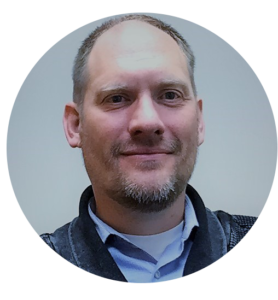
Here’s Rich in his own words.
Who is a person that you considered as a role model or someone who had a profound impact on your life?
As a youth I had a scoutmaster named Cliff Cone who profoundly impacted me. He was a custodian at the local high school who for decades took packs of abusive, unruly boys on hundreds of camping trips and dozens of “high adventures.” One year we took a 400-mile pilgrimage by bicycle; another time we built our own kayaks and paddled down the Allegheny River; a third year we hiked the Smoky Mountains, etc. He passed away during my college years and ever since I’ve wrestled with trying to understand exactly what impression he left on me and how. Why is it that I tear up whenever I think of him, and yet I’m unable to articulate his methods or what he did that was so amazing? And the simple answer is that he cared–deeply, profoundly, but quite simply. As rotten as young men are capable of being, every one of us knew that we were loved and valued.
Do you have a vision for your own success? If so, what can you share about it?
More than most, I have experienced a rich variety of lifestyles, experiences, and opportunities all over the globe. Through this, I have come to realize how truly privileged I am, but also to see how much control I have over the daily elements of my life via the choices I make–that I can fine-tune these choices and see the direct impact on my own (and my family’s) happiness. So to me, success means that I am a) regularly re-owning every choice and consequence in my life, b) proactively breaking paradigms to find new and better ways to enlarge/enrich myself, and c) encouraging others to do likewise.
How did you decide to pursue coaching/consulting? Was there a pivotal moment that lead you here?
I entered the consulting field after business school largely to avoid making what I feared could be a permanent commitment to a given industry or function. I just could not see myself ever saying “I do X and only X.” I wanted to explore and learn what I did and didn’t like from doing things in different fields and places. Over time, I discovered that my heart really wasn’t in the high intensity, quick turn project mode that defines much of corporate consulting today. Rather, I am more motivated by what I deem to be weightier, longer term issues, whether they be the economic development paths of countries or the personal development paths of individuals.
What’s one thing every leader needs to be successful?
I have worked closely with a broad range of leaders, from CEOs of small non-profits to Prime Ministers and Presidents of countries. No matter what type of organization they lead, it’s always lonely being the final decision maker, and I have never envied that job. One of the most important needs of these leaders is having confidants who can hear them out, challenge their thought processes, but then support them in their decisions (even when they disagree). These can be spouses, close friends, or even paid advisers, but every leader needs a couple people with whom they can be entirely open.
How do you relax?
Having experienced phases of my career that were highly intense and stressful, I’ve learned several coping mechanisms to guard against anxiety and stress. For one, I practice a weekly “sabbath” or day off; this began as a religious observance, but over time I realized it was fundamental to my mental health to disconnect my mind from work challenges for a day each week (with the added benefit of making me more productive and focused when I turn it back on). In a similar vein, I practice a weekly date night with my wife–the two of us head out sans children for 4-5 hours every Friday or Saturday night; in times of stress at work, she gives me perspective and helps me stay centered. Also, I don’t personally enjoy exercise very much, but I find that tackling landscaping projects in my yard or home improvement projects is very therapeutic–it allows me to access different parts of my brain and do something that feels at once productive and like I’m getting away with not working. Finally, I use both music and quiet time (e.g., during commutes) to either distract myself or crawl deeper into my thoughts, depending on how I’m feeling at the time.
